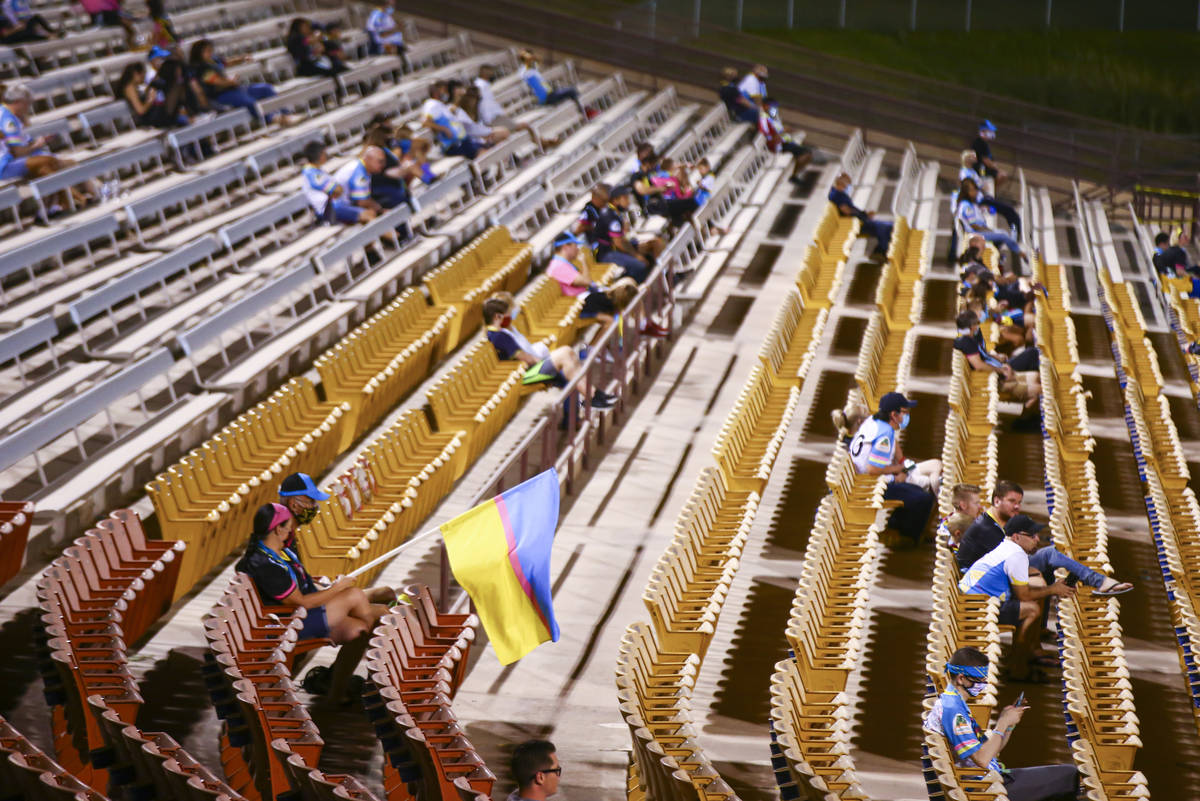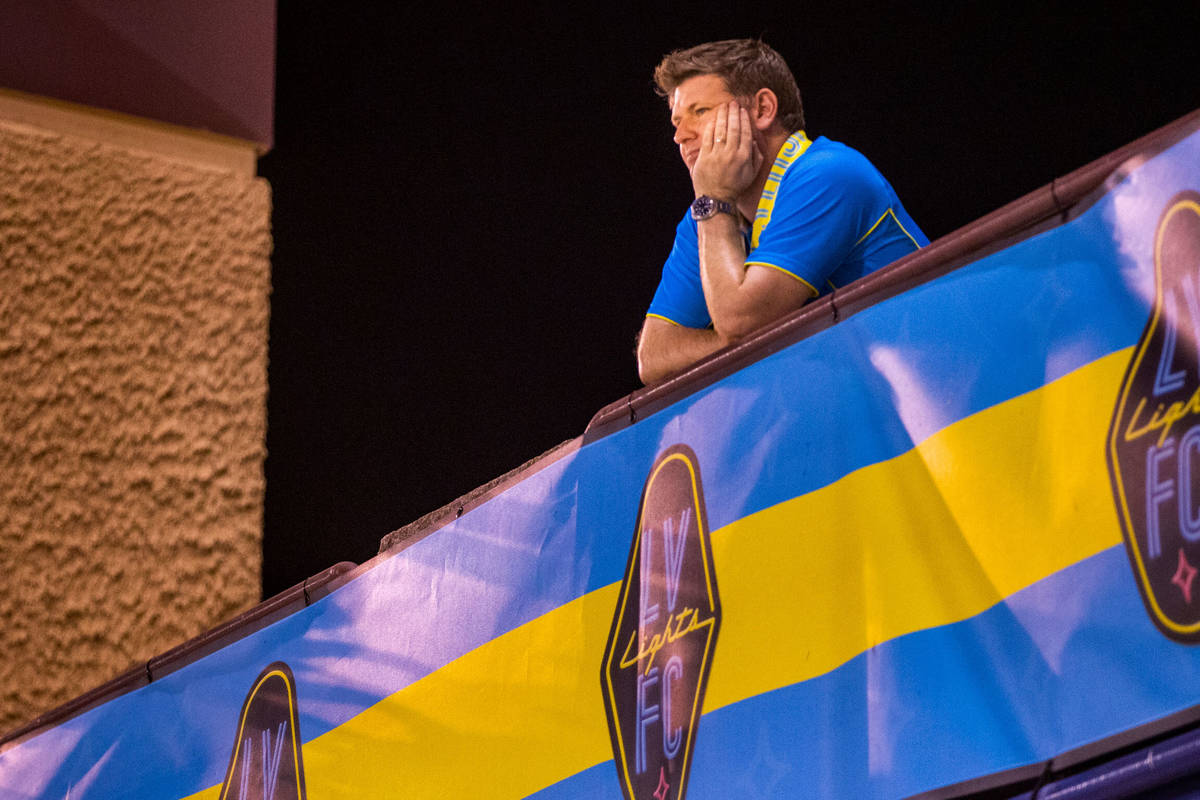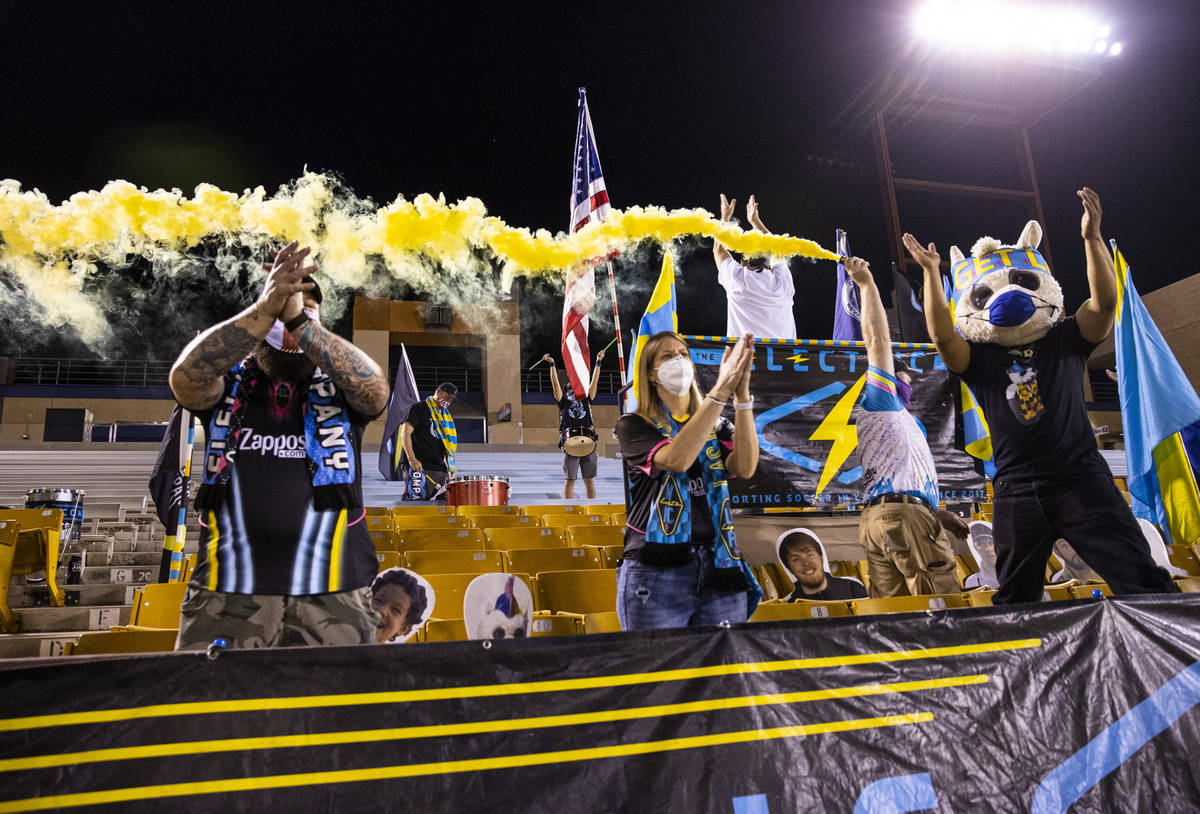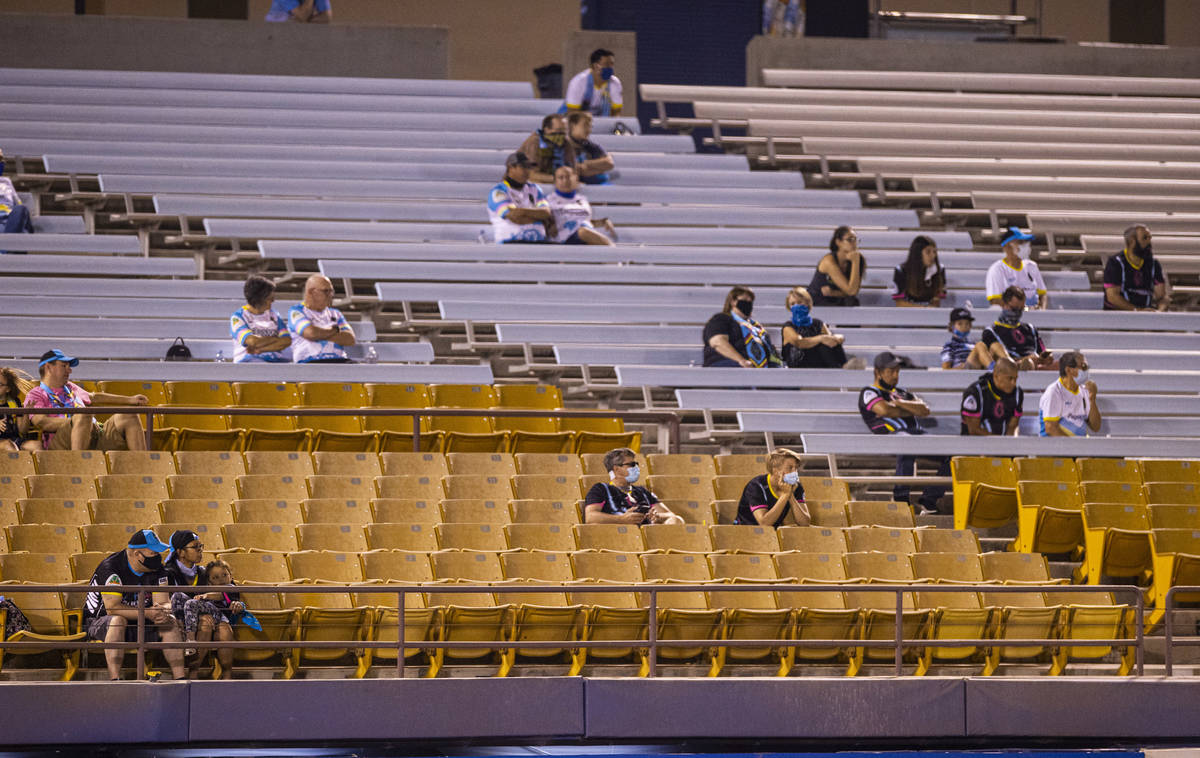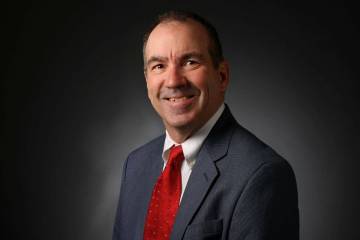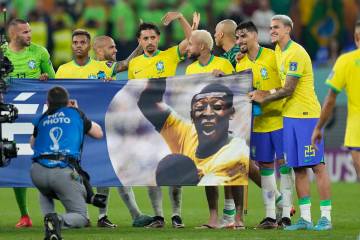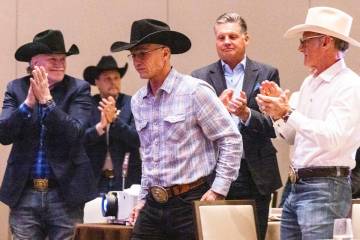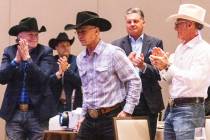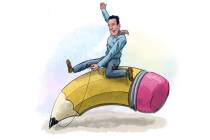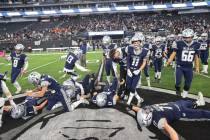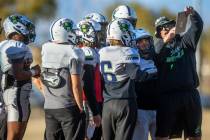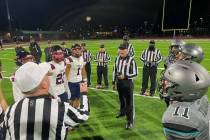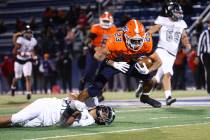Lights battle for survival amid coronavirus pandemic
Visitors to the Las Vegas Lights FC’s website these days are greeted by a five-minute soccer video in which Eric Wynalda, the former U.S. national team stalwart and Lights’ former coach, is prominently featured.
Wynalda was fired in June. In December, only two messages were posted on the team’s Twitter account.
One could almost see cobwebs.
A call was placed to Brett Lashbrook, the Lights’ loquacious and happy-go-lucky owner. We spoke for 37 minutes during which I learned the Lights are alive but not doing so well.
But at least they are doing better than the team in Reno.
Thinning ranks
Since COVID-19, five of the United Soccer League’s 35 franchises have folded. Reno 1868 ceased operations in November despite posting the league’s best record during the abbreviated 2020 season. And despite the deep pockets of owner Herbert Simon, who also owns the NBA’s Indiana Pacers.
Lashbrook’s pockets aren’t nearly as deep. This explains the virtual cobwebs on the Lights’ website and Twitter account. He has had to cut or furlough all but the most essential team employees to stay afloat until spectators are allowed back to Cashman Field.
“The public will tell me when they’re comfortable coming back to stadiums,” he said without mentioning local health authorities and Gov. Steve Sisolak’s office that ultimately will have the final say. “But once the public does that and we get back to quote unquote normal, I’m actually more bullish on my business than I’ve ever been.”
Defying the predictions of some so-called experts (including this one), the Lights had been a success at the turnstiles, thanks mostly to Lashbrook’s creative and sometimes outlandish promotions — can you say llamas on the touchline? — and reasonably priced tickets.
In 2019, Lights FC’s average attendance of 7,711 ranked fifth among the USL’s 36 teams and talk of the local side morphing into a Major League Soccer franchise continued. But the rumors have pretty much reverted to wishful thinking after the neon-clad Lights muddled through a partial 2020 season in front of empty or mostly empty grandstands.
Like leaving Lionel Messi unmarked in the 18-yard box, the decision to play minus most fans was a strategy that was guaranteed to fail.
Up in smoke
The USL business model is almost entirely based on ticket sales, concessions and, judging from the special effects at pre-COVID game nights at Cashman, smoke bombs. The second-tier MLS feeder league might be able to survive without smoke plumes. But another season without spectators almost certainly would be a death knell.
A league schedule that normally begins in early March already has been placed on hold.
“I think we’ll follow the lead of minor league baseball — about a third of the (USL) owners are minor league baseballowners,” Lashbrook said. “My guess is that we will all be starting about the same time, but who knows when that is.”
But what if that time does not arrive, or spectators aren’t allowed when it does?
Would it make more sense to suspend operations instead of stubbornly forging forward as in 2020? That seems to be the tack in the ECHL, where 11 teams in the 26-team double-A hockey league already have opted out of the 2000-21 season with two more said to be on the fence.
Without a TV contract to provide supplication, there’s a growing faction of USL owners who have mentioned the S-word in private cellphone conversations or Zoom conferences.
Last May when they decided to play, they thought the fans would be back by September. And though a lot of people in sports (and elsewhere) were guilty of a similar naivete when it came to this virus, the USL is now five franchises lighter because of it.
There is little mention of the capitulations on the USL website, which mostly contains artist renderings of new stadiums supposedly being built, or bleachers being hauled onto tribal casino land to accommodate existing teams.
The one earmarked for Phoenix Rising FC trumpets “multiple paved roads for quick entry and exit and permanent bathrooms for fans.”
Paved roads and permanent bathrooms may not sound like much on which to base a season-ticket campaign. But should they come to fruition and serve their intended purpose, the USL might survive to play another day.
Contact Ron Kantowski at rkantowski@reviewjournal.com or 702-383-0352. Follow @ronkantowski on Twitter.



